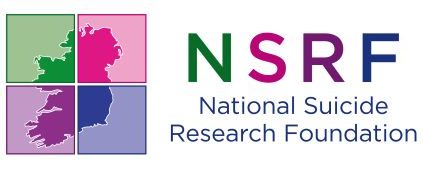We have grouped our research projects into five clusters, to help us optimise how we combine relevant specialist expertise and increase our research capacity, for example grant applications & publications.
Our five research clusters are aligned with the strategic goals of:
- Connecting for Life; Ireland’s National Strategy for the Reduction of Suicide, 2015-2024 (DoH, 2015)
- UN Sustainable Development Goals (2030), in particular target 3.4, which aims to reduce premature mortality from non-communicable diseases by one third by 2030.
Suicide and Self-Harm Surveillance
The National Self-Harm Registry Ireland
Northern Ireland Registry of Self-Harm
Improving surveillance and monitoring of self-harm in Irish Prisons: The Self-Harm Assessment and Data Analysis (SADA) Project
Suicide and Self Harm Observatory (SSHO)
WHO Collaborating Centre for Surveillance and Research in Suicide Prevention
Feasibility of a national register of probable suicide in mental health services
Social Determinants of Suicide and Self-Harm
Secondary analysis of the Healthy Ireland Survey
Social determinants of suicide
Identifying the needs of individuals who present to emergency departments following self-harm with co-occurring alcohol and/or drug use, to optimise referral and service provision
Youth self-harm and suicide - Predictors of onset, escalation and premature mortality
Intervention and Prevention Programmes for Self-Harm and Suicide
PRoviding Improved care for Self-harM: a mixed methods study of intervention, economic and implementation outcomes from a national clinical programme – PRISM
Towards Personalised Clinical Management of Suicide Risk through Data-Driven Clinical Decision Support using Transnational Electronic Registry Data (PERMANENS)
Working Group: Prevention of Paracetamol-Related Intentional Drug Overdose
REducing intentional overdose: a mixed methods STudy of means RestrICTion interventions (RESTRICT)
Examining individual and psychosocial determinants of self-harm and suicidality in older adults: improving risk assessment and management (SHOAR)
National Dialectical Behaviour Therapy Training Team
Identifying the needs of young people and their families bereaved by suicide
MENTBEST, Protecting Health in Times of Change
EAAD-Best
Mental Health Promotion and Intervention in Occupational Settings (MENTUPP)
Promoting Positive Mental and Physical Health in Changing Work Environments (PROSPERH)
Early Identification of Suicide and Self-Harm Risk and Comorbid Mental and Physical Disorders (MHAINTAIN)
Awareness, Training and Education
Development, implementation and evaluation of a university module in suicide prevention for undergraduate health and social care students: Phase Three and Four
Upscaling the Self-Harm Assessment and Management in General Hospitals (SAMAGH) Training Programme
C-SSHRI: Connecting Suicide and Self-Harm Researchers on the island of Ireland
Policy and Practice Implementation and Quality Improvement
Evaluation of the CAMS (The Collaborative Assessment and Management of Suicidality) in CHO7
Implementing the Collaborative Assessment and Management of Suicidality Framework (CAMS) in Student Counselling Services in Ireland
Postvention in Higher Education Institutions in Ireland

